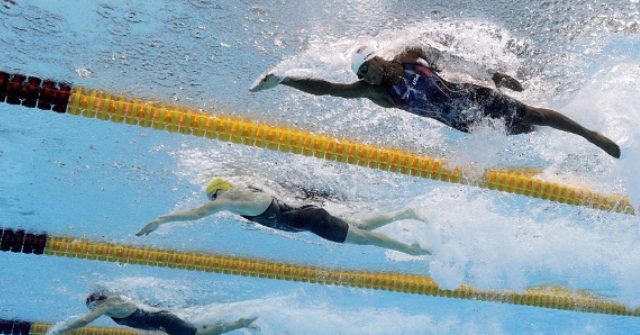The International Swimming Federation has banned the use of “Soul Caps” at this month’s Olympic games, held in Tokyo, Japan.
According to the federation, the Soul Cap company’s swim caps — which are designed for swimmers with thick, voluminous, and curly hair and have been made popular by several African American swimmers — do not “fit the natural form of the head.”
USA Today noted that the federation also insisted to its “best knowledge the athletes competing at the international events never used, neither require … caps of such size and configuration.”
The ban on Soul Caps has sparked outrage among many, specifically those who are working to protect the hair and hairstyles of black swimmers who take part in the Olympic games.
Danielle Obe, the founding member of the Black Swimming Association, told the Guardian that the ban has “created a sense of exclusion for members of the black and minority ethnic community,” suggesting that other caps for Afro hair are difficult to find.
Obe also insisted that those who make decisions like this “need to speak to the communities to find out what the barriers are that are preventing us from engaging,” adding that “hair is a significant issue for our community.”
According to Noliwe Rooks, Brown University’s African Studies chair and professor, the new ban “disregards the needs of Black women to protect their hair and their hairstyles” while they are swimming.
While this ban does not specifically speak about specific Black hairstyles in terms of a ban, as have previous bans from the U.S. military and various corporate concerns and workplaces, this ruling disregards the needs of Black women to protect their hair and their hairstyles when they swim,” Rooks told USA Today.
“The ruling specifically mentioned the fact that Soul Caps do not hug the scalp, but Black hair does not necessarily lay flat against the scalp, and also can have a thickness that makes it impossible to keep a traditional swim cap from filling with water as the athlete swims,” Rooks added.
On Friday, after extreme backlash to the new ruling, the swimming federation released a statement acknowledging “the comments and reactions concerning the use of “Soul Cap” swim caps in FINA competition.”
FINA is committed to ensuring that all aquatics athletes have access to appropriate swimwear for competition where this swimwear does not confer a competitive advantage. FINA is currently reviewing the situation with regards to “Soul Cap” and similar products, understanding the importance of inclusivity and representation.
There is no restriction on “Soul Cap” swim caps for recreational and teaching purposes. FINA appreciates the efforts of “Soul Cap” and other suppliers to ensure everyone has the chance to enjoy the water. FINA will also speak with the manufacturer of the “Soul Cap” about utilising their products through the FINA Development Centres.
In concluding the statement, the federation said it “expects to make its consideration of “Soul Cap” and similar products part of wider initiatives aimed at ensuring there are no barriers to participation in swimming, which is both a sport and a vital life skill.”
Follow Kyle on Twitter @RealKyleMorris and Facebook.






